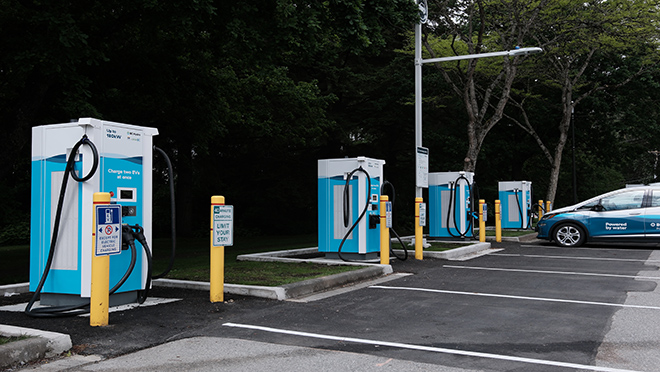BC Hydro is rapidly expanding it's DCFC network:

 www.bchydro.com
www.bchydro.com
It would be great if other Provincial utilities would step up in similar fashion.
Charging an EV in B.C. just got faster and more convenient. Earlier this month we opened our first ever fast-charging hub at the Surrey Arts Centre in Bear Creek Park, followed by hubs at North Surrey Sport & Ice Complex and Surrey Guildford Recreation Centre.
Together, these hubs feature sixteen 180 kW chargers with power sharing capacity to serve 32 vehicles at once. (from an email from BC Hydro)

Surrey happy to host electric vehicle fast charging hubs
For embracing the addition of BC Hydro eight-vehicle electric vehicle charging hubs, the City of Surrey has been named a BC Hydro Clean Energy Champion.
It would be great if other Provincial utilities would step up in similar fashion.


